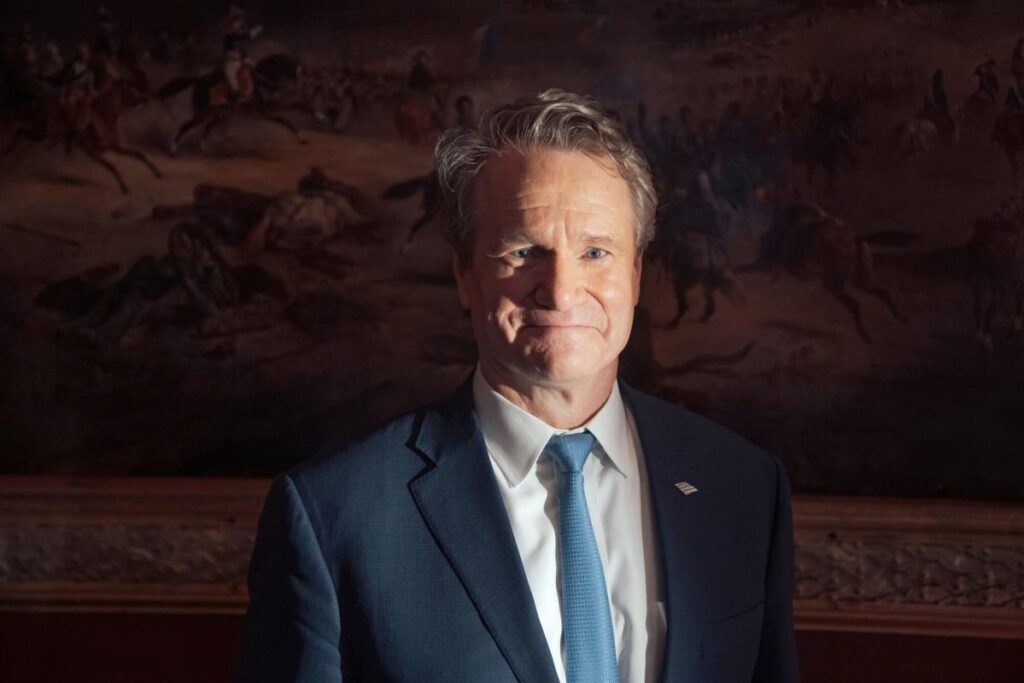(Bloomberg) — Bank of America Corp. Chief Executive Officer Brian Moynihan has urged Federal Reserve policymakers to be measured in the magnitude of interest-rate reductions.
Most Read from Bloomberg
“They were late to the game” in lifting borrowing costs in 2022, Moynihan said in an interview with Bloomberg TV in Sydney on Wednesday in his first trip to Australia. “They have got to make sure they don’t go too hard now” with cuts.
The danger for the central bankers is that “they go too fast or too slow and that risk is higher now than it was six months ago,” the CEO of the Charlotte, North Carolina-based bank said.
Investors have dialed back expectations for rapid US rate decreases and some Fed officials have signaled they favor reductions at a slower pace following the first cut since 2020 last month. That comes amid signs the American economy remains robust.
Moynihan, 65, is one of the longest-serving chiefs among the top US banks, and has signaled his intent to stay on for years to come. He was promoted to CEO in 2010 as Wall Street emerged from the subprime mortgage crisis, and has shepherded the lender through the Covid-19 pandemic and the banking industry crisis that destroyed Credit Suisse and Silicon Valley Bank.
Moynihan’s visit to Australia included a meeting with King Charles, who is also in the country to discuss the Sustainable Markets Initiative, which the banker chairs.
The Bank of America boss said during third-quarter earnings last week that the firm expects “no landing” for the US economy, referring to a situation in which growth stays strong, forcing central banks to remain hawkish on their inflation fight for longer.
“With an unemployment rate at 4% and wage growth at 5%, it’s hard for an economist to convince the world there’s going to be a recession,” he said on Wednesday.
He said he expects another 50 basis points of reductions before the end of the year from the Fed, and then four more cuts of 25 basis points spread evenly during 2025, bringing the terminal rate to 3.25%. He expects inflation would drift down to 2.3% into 2025 and 2026 under such a scenario.
US consumers are still cashed up from savings they accrued during the pandemic, the bank has said, though some households have recently showed signs of becoming more budget conscious. Investors are closely watching spending behavior to help predict how the Fed will decide to move on interest rates.
Read the full article here
